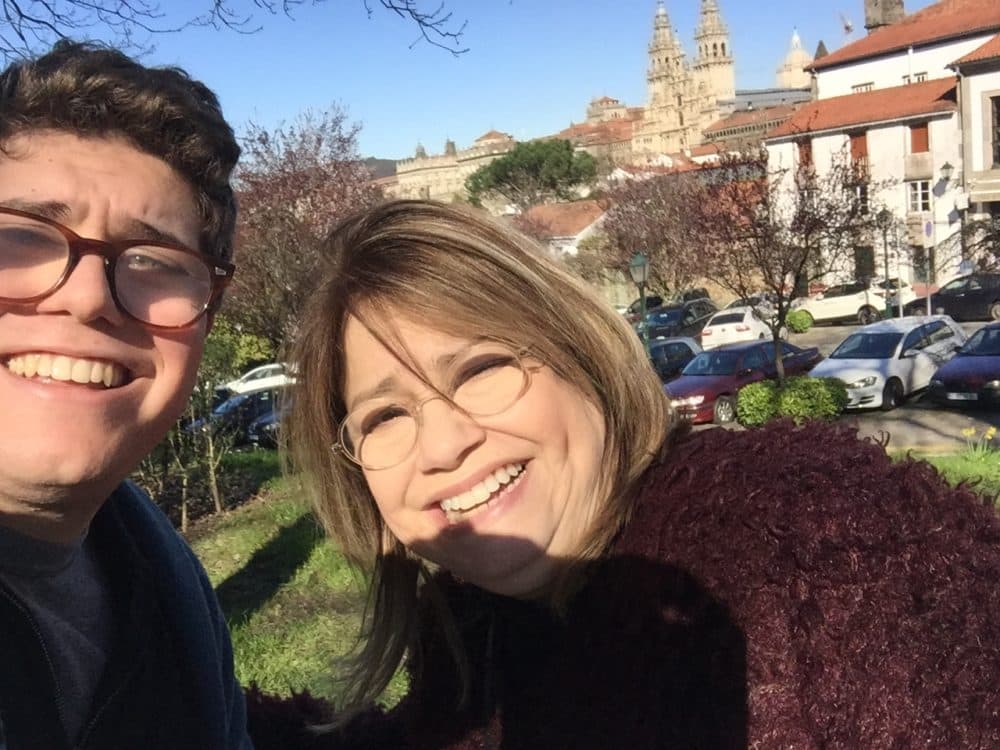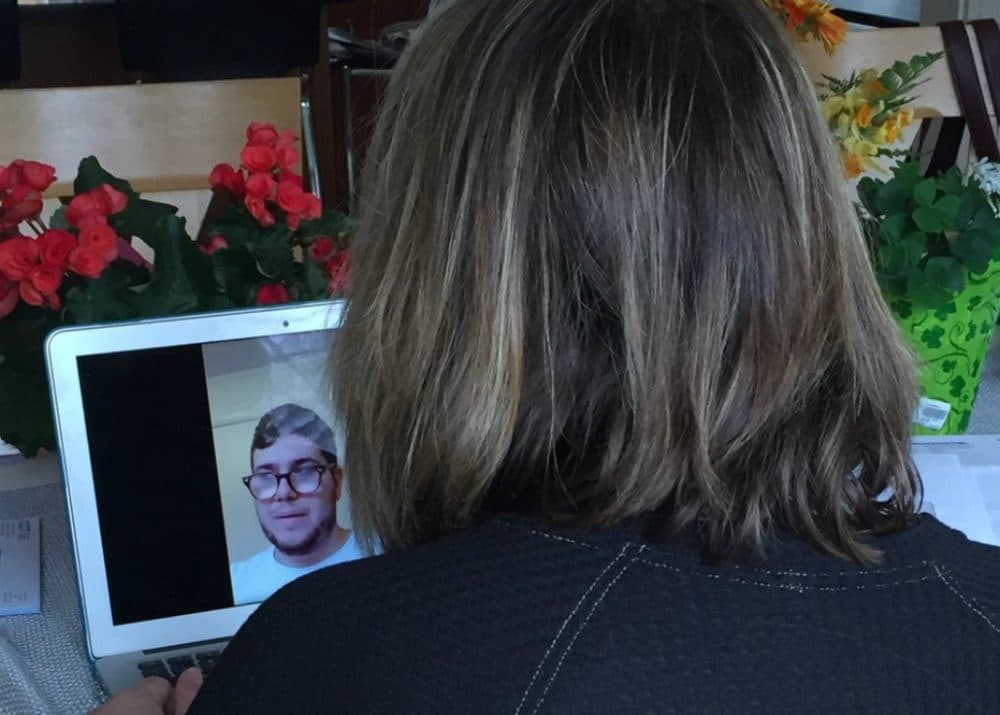Advertisement
Commentary
I Want To Hug My Son. I Can't

Yesterday I needed to see my son, Adam, in person. From a respectful, necessary distance of 6-plus feet, we met in the backyard and formed a loose circle of four with my husband and daughter.
There was Adam, momentarily out of self-isolation from our backroom, out in the fresh air.
I never imagined that his post-college year of teaching English in Spain would abruptly end this way. But in a matter of days, Spain skyrocketed to a level three country with coronavirus cases multiplying rapidly. My biggest fear was that flights out of Spain, and Europe in general, would be suspended before we could get Adam home. Thankfully that didn’t happen. However, my boy went straight from the plane last week, to two weeks of self-isolation. It reminded me of when the Apollo 11 astronauts had to go into quarantine after their moonwalk.
Although Adam is the only one in our household practicing this directed and self-imposed isolation along CDC guidelines, it feels as if our family of four is on some kind of psychological lockdown. We’re all in self-exile in our house. My husband has a cold and is socially distancing himself. I’m on pause with a broken shoulder and can’t do much for myself or anyone else.
My daughter, who is 25 and a student, is the only person fully operational at our house. She’s on call to do everything from slicing a bagel for me, to preparing meals that she leaves outside Adam’s door, to bringing the garbage pails out to the curb. She was in tears the other day over how overwhelmed she was with our care and feeding.
When my husband asks if he can hold my hand the request feels essential and yet transgressive.
In his way, my son is also overwhelmed in quarantine.
Long stretches of time are a liability. Theoretically, the world comes streaming to him on his laptop, but boredom still seeps into everything he does. How many episodes of “Law and Order” can he possibly watch? It turns out not so many when the world feels as if it is coming apart. How can he concentrate on reading a book in this new dystopia?
I can’t focus either. The books I want to read are piling up on my nightstand. I’ve always done my day job as a culture writer remotely, but somehow it feels different in this new reality. For the first time, I feel truly alone during my workday.
I can’t imagine how I would have coped with this pandemic if my children were little. These strange, long days have triggered bouts of anxiety and depression in me. My kids, now adults, calm me. It occurs to me that we’ve had a complete role reversal.
We long for that all-important human touch.
I read a funny piece in the New Yorker in which boomer parents ignored their nervous millennial children and went out to restaurants and theaters, despite the coronavirus spreading like wildfire. Of course, since that piece was published, everything has been shut down. I’m a boomer parent, but I wouldn’t dream of misbehaving that way — I’d never be cavalier in this maelstrom of infection. Quite the opposite: I’m depressed in the way that dystopian movies or science fiction make me feel. I visualize physical and psychological wreckage everywhere.
FaceTime offers connection, for which I am grateful. It’s not a substitute for physical contact, but it’s what I have — my overloaded internet serves up herky-jerky images. My heart aches when I hear my son’s voice from the back room, and his visage pixelates on my screen. Since he’s been home, I have yet to give him a hug and a kiss. It remains an unspoken sadness between us. If I tell him the obvious — how much I want to embrace him — I’m afraid I’ll breakdown and cry.
Since I’m not touching anyone in my family, we’re experiencing what psychologists called “skin hunger.” We long for that all-important human touch. The salutary effects of physical contact have been well documented in medical and psychological studies.

So when my husband asks if he can hold my hand the request feels essential and yet transgressive. Last night, I pressed my lips against my husband’s forehead to make sure he wasn’t running a fever. Maybe I was being cavalier after all. My son, on the other hand, takes his temperature twice a day per the CDC’s guidelines. I’m sure it’s a lonely exercise for him. When he shouts from the backroom 98.4 degrees, we all breathe a sigh of relief.
As my son self-quarantines in our midst, the days are more disorienting. He should be with us. The other day my husband, daughter and I were gathered in the den talking and laughing. On the other side of the door that leads to the backroom, we heard scratching. It was my son. He asked if we were all together. Implicit in his question was abandonment, betrayal, skin hunger. He broke our hearts. And we, in turn, broke his.
